Neuroscience

Researchers have discovered a protein that is the missing link in the complicated chain of events that lead to Alzheimer's disease. They also found that blocking the protein with an existing drug can restore memory in mice with brain damage that mimics the disease.
"What is very exciting is that of all the links in this molecular chain, this is the protein that may be most easily targeted by drugs," said Stephen Strittmatter, a Yale University School of Medicine Professor of Neurology and senior author of the study. "This gives us strong hope that we can find a drug that will work to lessen…

A stressful pregnancy might be the last thing a future mother needs, but it is to her unborn baby that this stress spells real trouble. All because stress hormones (called glucocorticoids or GCs) can disrupt foetal brain development, leading to serious behavioural and emotional problems, much in the same way that traumas early in life can result in children with serious mental problems. Despite these prenatal devastating health effects scientists remain far from understanding GCs mechani. But now a study in rats by Portuguese scientists has…
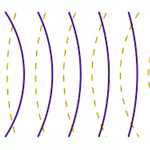
Okay Daredevil, this will take some time and some work, but so does playing a guitar - a group of biologists have determined that humans can learn to echolocate the way bats do.
It's well known that blind people develop keener hearing and they even learn to help navigate using echoes of sounds, but that ability to determine locations spatially is suppressed by the 'precedence effect' - which occurs when a second sound arrives rapidly and becomes fused with the first so that the first is dominant.
Ludwig-Maximilians-Universität München scientists have developed a method for really…

A group of gamma-aminobutyric acid
(GABA) neurons, the neurotransmitters which inhibit other cells, shown to contribute to symptoms like social withdrawal and increased anxiety, may lead to a new drug target for depression and other mood disorders.
It is known that people suffering from depression and other mood disorders often react to rejection or bullying by withdrawing themselves socially more than the average person who takes it in strides, yet the biological processes behind these responses have remained unclear.
A pre-clinical study found that bullying and other social…
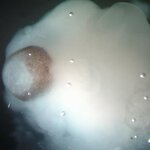
Organoids, those laboratory-created tissue structures designed to mimic human organ functions, are now getting into your head.
Last year, researchers created kidney organoids from embryonic kidney cells - no trivial feat, because kidneys are complicated and don't form without the support of blood vessels. The kidney organoids by Christodoulos Xinaris PhD of the Mario Negri Institute for Pharmacological Research and colleagues was able to be integrated into a living animal and resulted in kidney functions, including blood filtering and molecule reabsorption. Understandably, this is a big topic…
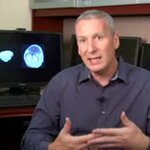
High-functioning autistic children appear able to outgrow a critical social communication disability. Younger children with autism have trouble integrating the auditory and visual cues associated with speech, but the researchers found that the problem clears up in adolescence.
In previous work, the researchers demonstrated that children with Autism Spectrum Disorder (ASD) integrate multisensory information such as sound, touch and vision differently from typically developing children. Among typically developing children, multisensory integration (MSI) abilities were known to continue…

A new case study outlines the instance of a 60-year-old woman who suddenly began hearing music, as if a radio were playing at the back of her head.
She couldn't identify the music but when she hummed or sang the tunes, her husband was able to recognize them. She didn't know the songs but she was hallucinating music familiar to people around her.
Neurologists Danilo Vitorovic and José Biller of Loyola University Medical Center say the case raises "intriguing questions regarding memory, forgetting and access to lost memories."
Musical hallucinations are a form of auditory hallucinations,…
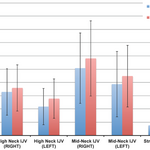
There is no evidence that impaired blood flow or blockage in the veins of the neck or head is involved in multiple sclerosis, according to a new paper in an open access journal.
The finding contradicts a hypothesis that says MS, a chronic, neurodegenerative and inflammatory disease of the central nervous system, is associated with abnormalities in the drainage of venous blood from the brain.
In 2008, Italian researcher Paolo Zamboni said that angioplasty, a blockage clearing procedure, would help MS patients with a condition he called chronic cerebrospinal venous insufficiency (CCSVI).…
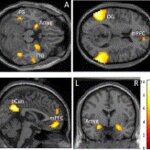
Difficulty in registering and responding to facial expressions is a characteristic of autism and somr functional imaging studies claim that individuals with autism, and its very wide modern spectrum of disorders, display altered brain activations when processing facial images.
The hormone oxytocin plays a role in the social interactions of both animals and humans. Studies conducted with healthy volunteers have provided evidence for beneficial effects of oxytocin in terms of increased trust, improved emotion recognition, and preference for social stimuli.
This combinationled German researchers…
The nature of hypnotically suggested changes in perception has been controversial throughout the history of hypnosis.
The major current hypotheses of hypnosis hold that we always actively use our own imagination to bring about the effects of a suggestion - for example, the occurrence of visual hallucinations always requires active use of goal directed imagery and can be experienced both with and without hypnosis. In other words, it isn't really hypnosis, but people susceptible to suggestion become more so when drowsy.
A multidisciplinary group from the University of Turku,…